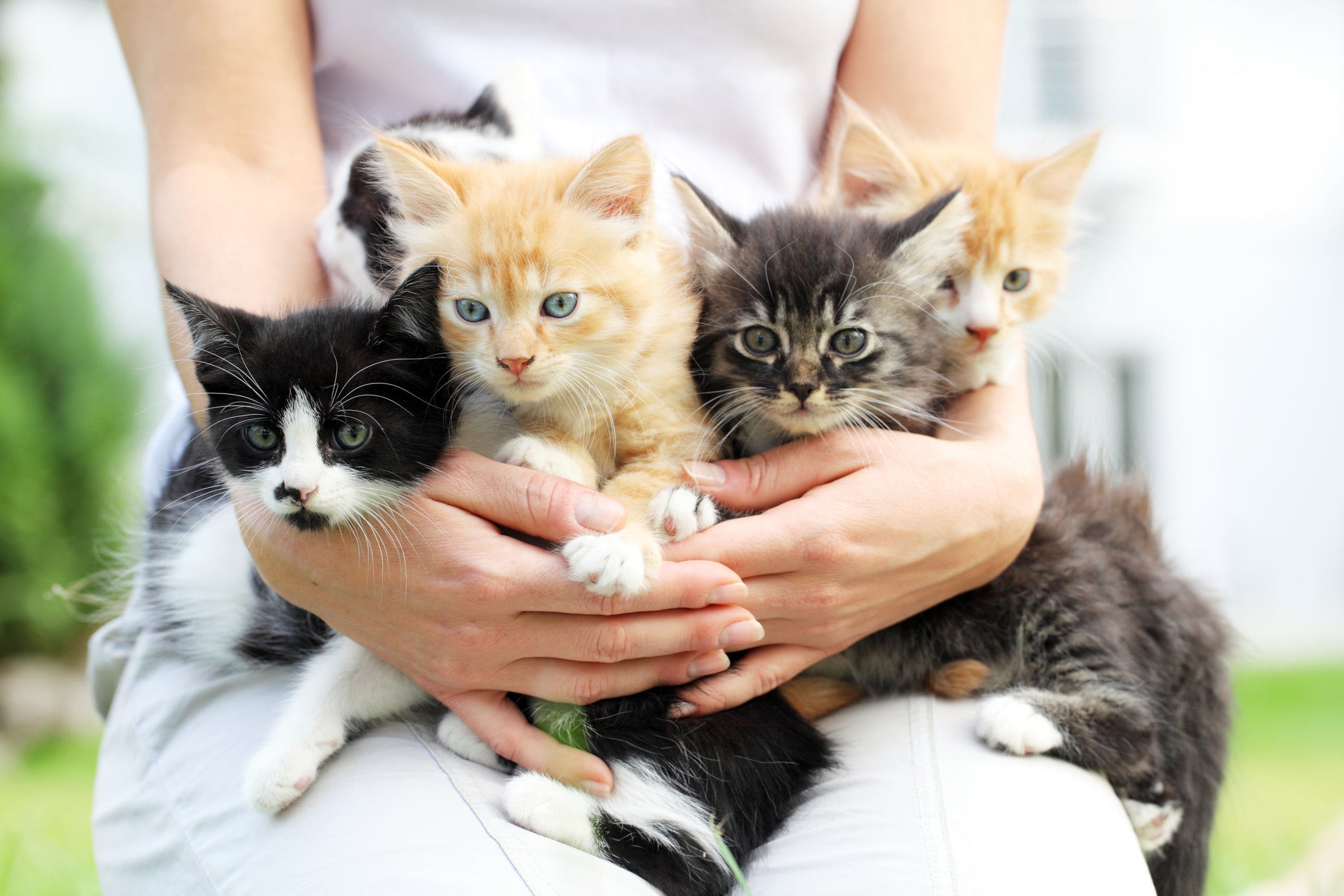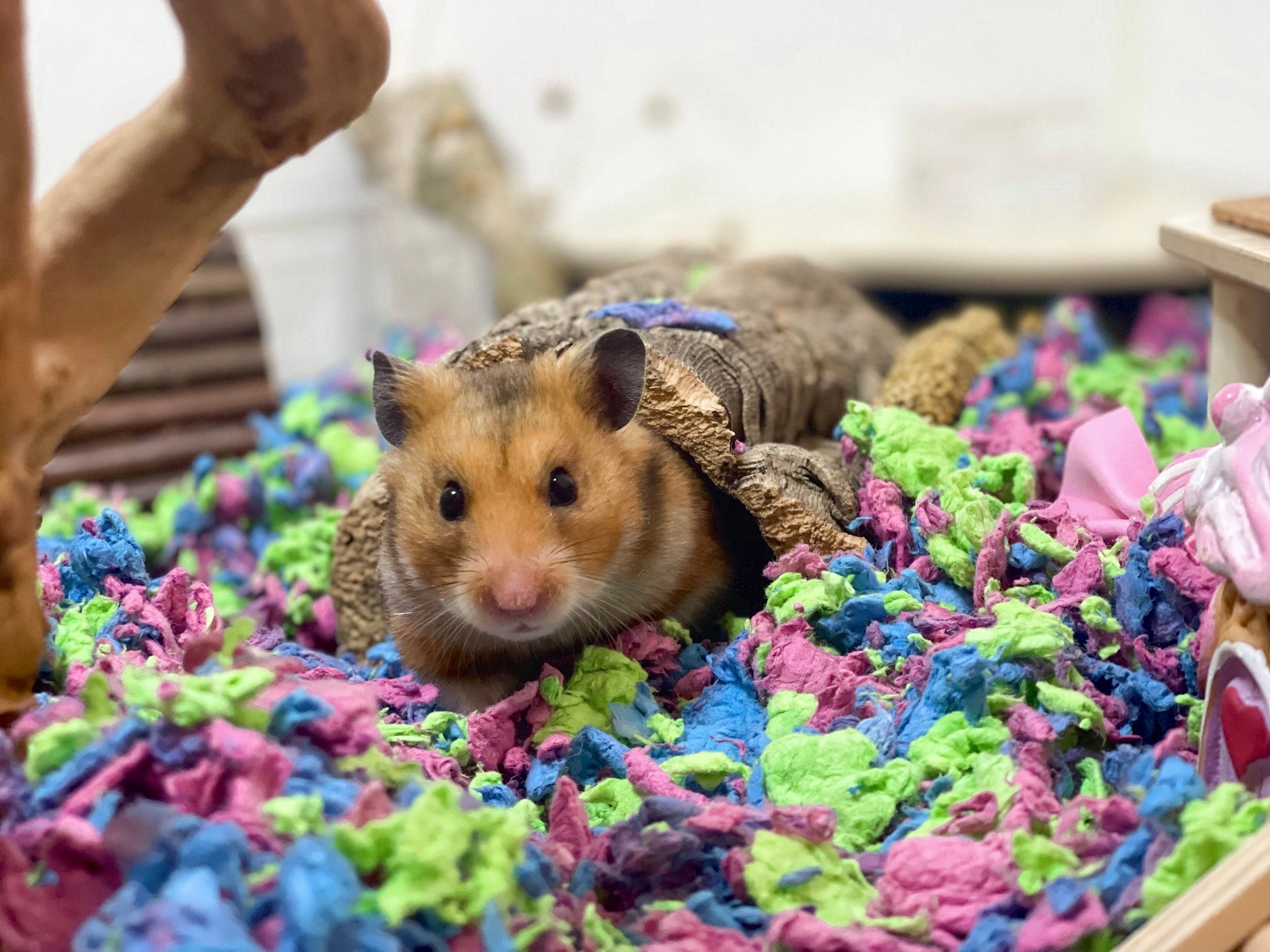Top Rabbit Ailments and How to Prevent Them
Did you know that February is Adopt-a-Rabbit Month? While rabbits make great pets, many people do not realize the commitment of being a rabbit parent. Rabbits can live 8 to 12 years. To make sure that your bunny has a long and healthy life, you will need to provide a nutritious diet, proper housing, and become familiar with their health issues. Here are some of their most common health problems.
Overgrown teeth
Rabbits’ teeth grow continuously. Unfortunately, this means that if they do not wear them down, their teeth can become sharp and overgrown. This can cause trauma to the cheeks and tongue and be painful. In severe cases, the front incisors can get so long that they curl around and prevent a rabbit from closing their mouth and even eating. So how do you know if your rabbit’s teeth are too long? Rabbits with dental problems often stop eating. If you notice your rabbit’s face is wet or they aren’t eating like they used to, be sure to check their teeth or see your veterinarian. The best way to prevent your rabbit from having overgrown teeth is by making sure your rabbit always has access to fresh hay, like carefresh Timothy Hay from chewy, and toys to gnaw on. Chewing hay, or gnawing on toys, helps wear down teeth and prevents them from getting too long.
Upper Respiratory Illnesses
Respiratory infections are common in rabbits, especially when rabbits are housed in crowded stressful conditions. Likewise, rabbits kept in dirty enclosures with inadequate ventilation are more susceptible to these types of infections. Pasteurellosis is the most common causes of bacterial upper respiratory infections in domestic rabbits and its often referred to as “snuffles.” It is highly contagious and spread through sneezing, coughing and direct contact. It causes an inflammation of the mucous membranes and lungs and left untreated can lead to pneumonia. The typical signs of an upper respiratory infection in rabbits are: runny nose, nasal or eye discharge, sneezing and coughing, and decreased appetite. Rabbits wipe their noses with their front feet, so sometimes people will notice their bunny has wet matted fu on their front legs. Infected rabbits require treatment with antibiotics and supportive care.
Gastrointestinal Stasis
For many years, it was believed that rabbits stopped eating due to intestinal blockage caused by hairballs from excessive grooming. This condition was often referred to as “wool block.” However, we now know that it is normal for rabbits to have some amount of hair in their stomach since they are fastidious groomers. When rabbits stop eating, it is usually caused by gastrointestinal (GI) stasis rather than true blockage. GI stasis refers to slowing of the passage of food through the gastrointestinal tract. Veterinarians now believe that GI stasis in rabbits is caused by a change in the intestinal bacterial, also known as gut microbiome. These bacteria are beneficial and help a rabbit digest its food. When rabbits develop GI stasis, they stop eating, stop passing stool, become bloated, and can die if untreated. Treatment involves IV fluids, syringe feeding if the rabbit is not eating, antibiotics if there is an infection, and drugs to speed up gut motility. The risk of GI stasis can be reduced by feeding your rabbit hay and a high-fiber diet and by exercise your rabbit to stimulate gut motility.
Ear Mites
Ear mites are a common parasite seen in rabbits. Rabbits with ear mites shake and scratch at their ears. In addition, affected animals usually have thick, dry, brownish crusty discharge in one or both ears. Ear mites are highly contagious from rabbit to rabbit and can lead to a head tilt if left untreated. Treatment is simple and involves an injection or topical medication.
Ulcerative Pododermatitis
Ulcerative pododermatitis, commonly called “sore hocks,” is an infection of the soles of the rear feet. It occurs when rabbits develop pressure sores on their rear feet that then become infected. This occurs more frequently in overweight rabbits that are housed on wire-floor cages. Urine-soaked droppings and dirty bedding create the perfect breeding ground for bacteria that can colonize irritated and inflamed skin leading to infection. Signs of ulcerative pododermatitis include: abnormal walking, limping, and sitting in a peculiar position with weight shifted off the rear feet. Treatment involves moving affected animals to a clean cage with a solid floor and soft bedding. Topical and oral antibiotics are used to treat the infection.
Myxomatosis
Myxomatosis, often called “big head disease,” is a deadly viral disease seen in domestic rabbits. It is caused by the myxoma virus, which is a type of pox virus and is transmitted by mosquitos, biting flies, ticks, fleas and direct contact. Rabbits with myxomatosis often have nasal and eye discharge, nasal swelling, fevers and lethargy. Unfortunately, there is no treatment and the disease is usually fatal. The best way to prevent this horrible disease is to protect them from the insects that transmit the disease. Talk to your veterinarian about the best parasite control measures for your rabbit.
When to call your veterinarian
Like people, rabbits can become sick, but unlike us, they can’t tell you when they don’t feel well. In addition, they are very good at hiding signs of illness, a trait that was necessary for their wild rabbit cousins. So how do you know when your bunny is sick? Common signs of illness in rabbits include: nasal discharge, congestion, eye discharge, lethargy, poor appetite, diarrhea or reduced stool. If you notice any of these signs, notify your veterinarian right away.
Prevention
So how can you keep your rabbit healthy? Make sure they are fed a nutritious diet that includes fresh hay daily. For more information about what to feed your rabbit, check-out this article. Rabbits also need to kept in a well-ventilated clean habitat with proper bedding and a litter box, using carefresh® bedding or litter. Soiled bedding should be removed daily and entire habitats should be cleaned weekly. Just like dogs and cats, rabbits should be spayed and neutered and have annual veterinary check-ups to ensure they are healthy and up-to-date on preventatives.
>>> Learn more about rabbit care, bonding and playtime
By feeding your rabbit a nutritious diet, housing them in a clean and tidy habitat, looking-out for common health problems, and taking them to the veterinarian regularly, you can give your rabbit the best chance to live a long healthy life.
Read MoreFilter - Key Words
- bedding
- biodegradable
- Bunny
- carefresh
- cat health
- cats
- CritterCare
- dog
- ferret
- fostering
- Guinea Pig
- habitat
- hamster
- health
- Healthy Pet
- kitten
- litter
- ökocat®
- paper bedding
- pets
- Rabbit
- safety
- small animal
- small pet
- sustainable
- Vet
- Veterinarian
Dr. Ruth MacPete

aka Dr. Ruth, The Pet Vet
“I am passionate about pet care and educating pet parents about making Earth-friendly choices, and I admire Healthy Pet for making products that are good not only for your pets, but also your family and the environment.”
Visit the Pet Vet






